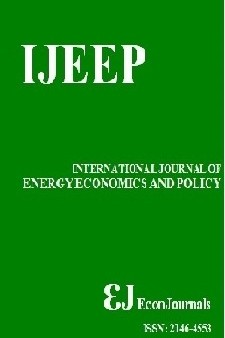How Secure is the EU Energy Policy after the Ukraine Crisis?
How Secure is the EU Energy Policy after the Ukraine Crisis?
The political tensions which have emerged between Russia and the West after Ukraine crisis put the EU energy security problem at the top of the EU agenda. While dependency on Russia and bilateral agreements appear to be weaknesses of EU energy security, decline in demand among EU members and improvement in energy efficiency pose to be strengths. The EU has also some opportunities to deal with the crisis such as decline in oil prices and diversification of energy supply while falls in domestic energy production and Ukrainian question pose threats to the EU energy security.
Keywords:
Energy Policy, EU, Ukraine Crisis Energy Security,
- Başlangıç: 2011
- Yayıncı: İlhan ÖZTÜRK
Sayıdaki Diğer Makaleler
Miloud LACHEHEB, Abdul Samad Abdul RAHİM, Abdalla SİRAG
George Nikiforos BOTZORİS, Athanasios T. GALANİS, Vassilios A. PROFİLLİDİS, Nikolaos E. ELİOU
Upward Sloping Demand for a Normal Good? Residential Electricity in Arkansas
Thomas M. FULLERTON, İleana M. RESENDEZ, Adam G. WALKE
Dynamics of Switching from Polluting Resources to Green Technologies
The Effect of Stock, Government Policy, and Monopoly on Asymmetric Price Transmission in Thailand
Prasarn PATANAKORN, Pongsarn PORNCHAİWİSETGUL
Measuring the Security of External Energy Supply and Energy Exports Demand in Central Asia
